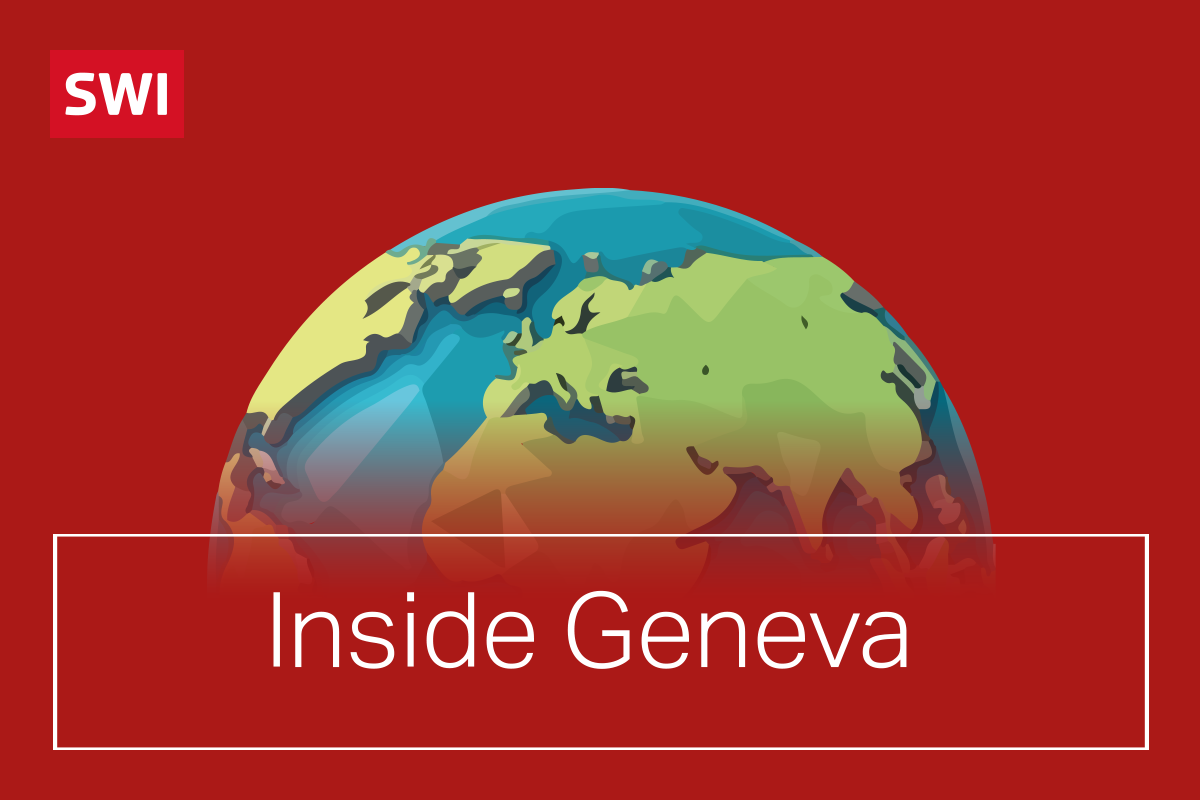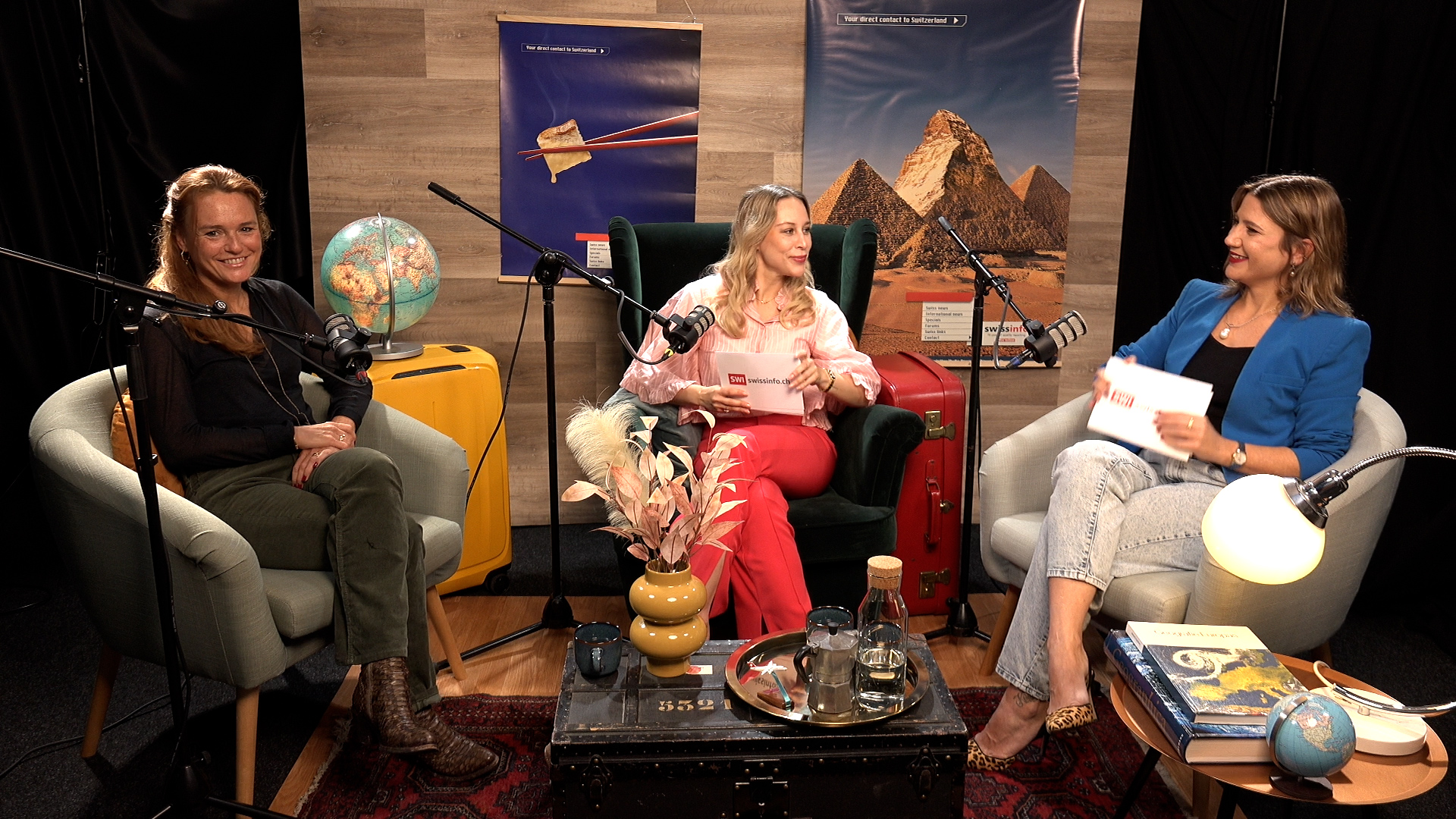
Ukraine: what can stop the war?
Russian forces are turning the full might of their firepower on eastern Ukraine. The war is almost two months old – it’s safe to say that on February 24, not even those in the Kremlin who ordered it thought it would last so long.
But how to bring it to an end? That is the subject of this week’s Inside Geneva podcast, where my guests and I discuss war crimes investigations, sanctions, and what possible course of action might cause Moscow to reconsider its position.
While this war may seem long already to most of us, in fact the process of investigating war crimes is taking place at unprecedented speed. Human Rights Watch, whose Europe director Hugh Williamson joins us on Inside Geneva, has already uncovered, and published, evidence of major violations in the town of Bucha.
“We identified very gruesome war crimes, such as summary executions. Men, taken out into the street and shot in the head,” Williamson tells us.
The International Criminal Court was quick to announce its intention to open an investigation, forensic specialists are already on the ground, gathering evidence that could, someday, put Vladimir Putin himself on trial for war crimes.

More
Ukraine: can sanctions or war crimes investigations stop the war?
Deterrence factor?
Of course, the chief and ultimate goal of war crimes investigations is accountability; those responsible should be prosecuted, victims must have the chance to testify, and to see that justice is done.
But with evidence emerging so quickly, and investigations proceeding so fast, could the process also serve as a deterrent for Russian soldiers in Ukraine? Could the risk of ending up in The Hague cause them to show more respect for the Geneva Conventions?
Our analyst Daniel Warner believes the rapidity of the process is crucial. “Putin has made Russia a pariah,” he tells Inside Geneva. “We have to deal with that at this moment, there are no humanitarian or human rights laws being respected by the Russian government now.”
Perhaps the investigations into alleged war crimes will give Russian soldiers on the ground pause for thought, but what about the Kremlin? Its occupants might come to the conclusion that there is little point discussing an end to hostilities when the next logical step for them after a peace deal is a war crimes trial.
“How are you going to negotiate with someone who is accused of war crimes?” asks Daniel Warner.
Long process
Human rights groups and war crimes prosecutors respond quite firmly; irrespective of what kind of peace negotiations might or might not happen, international law must be respected, violations must be investigated, and perpetrators held accountable.
But even if, as with Ukraine, the evidence emerges quickly, the prosecutions could be years away. It took decades for those who committed war crimes in former Yugoslavia to be brought to justice. In Syria, where the conflict is now in its eleventh year, the regime allegedly responsible for the vast majority of violations remains in power.
Very few prosecutions over Syria have taken place. With the advent of universal jurisdiction, in which any country can prosecute a citizen of any other country for war crimes committed anywhere, more are in the pipeline, but still the process will take time. And as long as they don’t leave their own country, Syria’s leaders can avoid prosecution.
What about sanctions?
When Russia invaded Ukraine, Europe and the United States moved quickly to impose sanctions. But can they act fast enough to serve as a deterrent? That’s not the way it usually works, explains Erica Moret, an expert on sanctions at Geneva’s Graduate Institute.
“We shouldn’t think about sanctions as some kind of silver bullet that’s going to come in and sort out the situation.”
Instead, Moret points out, sanctions need to be carefully thought out and targeted, and those imposing them need to be clear what the goal is. “What is the objective? Is it punitive economic pain? How does that translate to some kind of political gain?”
There is in fact no real evidence that economic sanctions cause a country to change course quickly. In Iran, Iraq, or North Korea, they are or were in place for years without a discernible effect on policy.
Some hope that, in Russia, ordinary people will feel the economic pain quickly, and that they might then be encouraged to pressure their own government into a change of course. But modern sanctions are not supposed to inflict real suffering on ordinary people – food, and medicines, for example, are supposed to be exempt.
What’s more the repression of dissent in Russia, and the control of information, now appear so great that a public uprising against the war seems highly unlikely.
So where do we go from here?
I said at the beginning that many people thought this war might be short. That vain hope is now being abandoned. All wars end at the negotiating table of course, but it is very hard to see what might be on that table, what a peace deal could look like.
And after what has happened in Bucha, or Mariupol, or Kramatorsk, it’s highly unlikely sanctions can be lifted quickly, even if the guns fall silent. Investigations into and prosecutions for war crimes cannot and must not be stopped.
The balancing act for Ukraine, and for its allies in Europe and the US, is to find a way to punish and isolate Russia’s leaders, without doing the same to Russia’s entire population. That, many believe, could simply store up huge problems for the future.
Erica Moret suggests caution. “There need to be carrots alongside the sticks,” she says, and urges that the West make clear to ordinary Russians the intention is not to punish them. One positive signal, she believes, would be to allow the Russian diaspora to continue to send money back home – money on which many ordinary Russian families depend.
Analyst Daniel Warner, however, isn’t optimistic. “For the near future it’s going to be very sad for the people of Russia.”
But at Human Rights Watch, which, like other human rights organisations, has now been shut down in Russia, there are motivational words for millions of ordinary Russians who, like us, want this war to end.
“Have courage and have strength for the future,” says Hugh Williamson. “Stand up and express your views if you feel you can keep safe. But most of all, have courage and have strength that things may be a lot better at some point.”
Click here to listen to this week’s episode of the Inside Geneva podcast.

In compliance with the JTI standards
More: SWI swissinfo.ch certified by the Journalism Trust Initiative































You can find an overview of ongoing debates with our journalists here . Please join us!
If you want to start a conversation about a topic raised in this article or want to report factual errors, email us at english@swissinfo.ch.